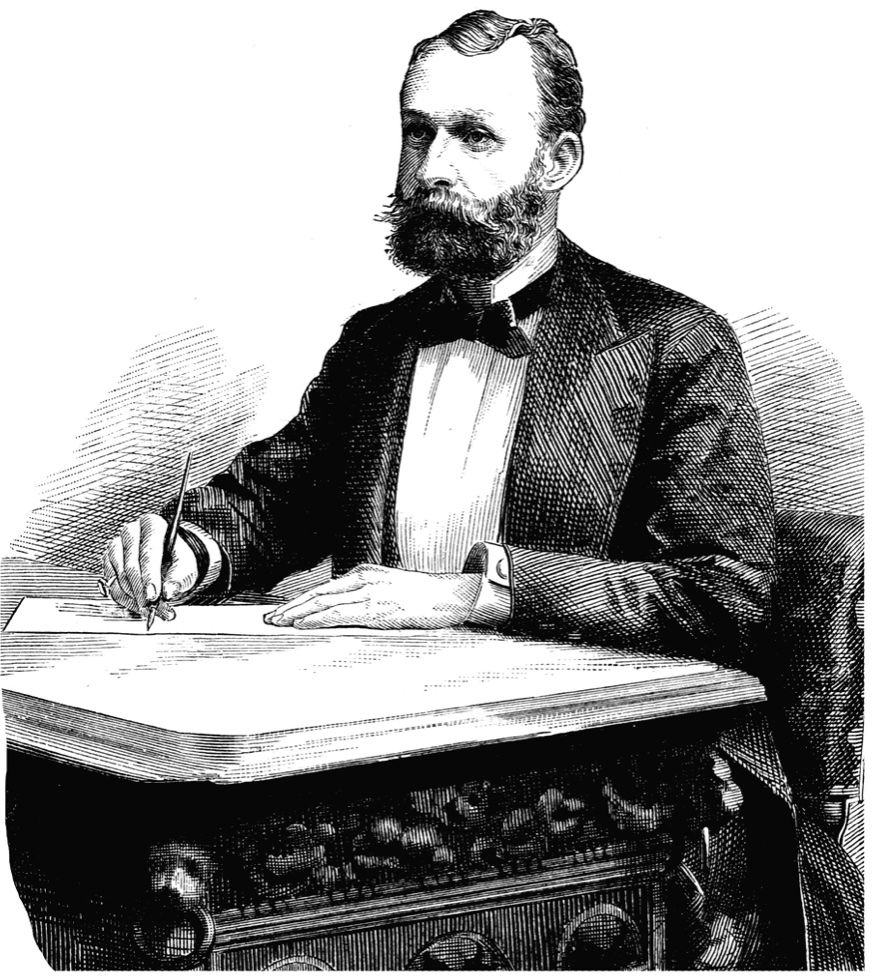I wish ass were not a four letter word.
I wish I could reapply the cultural context that let C.S. Lewis use the word in four of the seven Narnia Chronicles books: “‘Shut up and don’t be an ass, Scrubb,’ said Jill hastily” in The Silver Chair. “You were only an ass, but I was a traitor,” Edmund told Eustace in The Voyage of the Dawn Treader. “‘I don’t think it would be respectful to the Great Lion, to Aslan himself, if an ass like me went about dressed up in a lion-skin,’ said Puzzle” in The Last Battle. And possibly my favorite, “Come back, Reepicheep, you little ass!” shouted Peter” in Prince Caspian.
But I can’t be C.S. Lewis. When a young man leans against the wall in my high school English class talking to his classmates while I tell everyone a joke, and later claims “I wasn’t talking!” I can’t say to him, “Stop being an ass, Scrubb.”
And that’s too bad, because, as Lewis’s example shows, the word is thoroughly useful, carrying an edge that “fool” in English lacks. A thorough fool—one foolish in the way described in the Bible’s book of Proverbs—is more than a clown or a buffoon. A thorough fool, I would claim, is an ass.
***
Not that a buffoon isn’t one. Shakespeare demonstrates this with side-splitting beauty in A Midsummer Night’s Dream. Nick Bottom, the weaver and would-be actor, is no mental heavyweight, but he so thoroughly overestimates his own value that his foolishness furnishes his entire character.
He is, as Proverbs says, one whose way “is right in his own eyes.” You’re performing a play that requires at least three characters? Bottom will offer to play them all, even if they occupy the stage together (“Let me play the lion too!”). An audience member suggests there is something lacking in the play you’re performing? Bottom will break that fourth wall to explain how it works. (“No, in truth, sir, he should not. ‘Deceiving me’ is Thisby’s cue. She is to enter now, and I am to spy her through the wall. You shall see it will fall pat as I told you”) Need to quote something profound to capture a transcendent experience in your life? Bottom can weave allusions into any speech with a tongue that outpaces knowledge: “The eye of man hath not heard, the ear of man hath not seen . . .”
As a fool, Bottom is unperturbed by his mistakes (“A rebuke goes deeper into a man of understanding than a hundred blows into a fool” says Proverbs 17:10), so it is no surprise when the fairy Puck turns him into a literal ass as part of Oberon’s plan to torture the queen of the fairies, Titania.
For Shakespeare, saying “ass” was not edgy. The Oxford English Dictionary shows that in Elizabethan England the word carried only two meanings—a donkey and a fool. The crass curse of the time was arse. I was therefore on solid ground when, during my sophomores’ study of the play, I granted amnesty to anyone brave enough to use the word in my presence.
And that was okay because Bottom is so thoroughly a fool that he’s an ass: a total idiot unprepared to recognize his limitations. But even Shakespeare is only powerful enough to grant me permission for temporary use of the word. Though many of my students curse like they learned English from Chief Keef albums, if I were to use ass to describe even Bertie Wooster, I might as well hand out my principal’s phone number for quicker reference. In one sense, I am okay with this—I have no desire to speak like Chief Keef—but is there a way to change the status of this one word? Could I add an ass-addendum to my syllabus?
Our contemporary idiom gives the word an edge, and I need more justification than buffoonery to use it anew.
***
I need Ignatius J. Reilly.
Reilly is the hero of John Kennedy Toole’s A Confederacy of Dunces, and he excels in areas of foolishness that Bottom completely lacks. He is a quarreler, for example (Proverbs 20:3), one to walk into a fight (Proverbs 18:6), one to utter slander (Proverbs 10:18) and to run into evil (Proverbs 13:19).
On Reilly’s first attempt to work as a hot dog vendor he circles a city block and manages to eat 8 of 12 wieners without selling one. When confronted by the boss, Reilly spins a tale of assault. “How much money did he get?” his boss wonders. “Money?” Reilly replies,
“No money was stolen. After all, there was no money to steal, for I had not been able to vend even one of these delicacies. He stole the hot dogs. Yes. However, he apparently didn’t take them all. When I had recovered, I checked the wagon. There are still one or two left, I think.”
“I never heard of nothing like this.”
Reilly then concocts a criminal motive, one involving unfulfilled sexual desire and society’s pedaling of suggestive television programs, and as he lures the boss into believing it, it becomes clear that at some level, he believes this theory himself. The simple, Proverbs asserts, “believes everything.” Weeks later, even after requesting a discount on hot dogs (“After all, I am becoming your best customer”), he refuses to believe why he is gaining weight: “Health note: Astonishing weight increase, due no doubt to the anxiety which my dear mother’s increasing unpleasantness is causing me.”
Ignatius J. Reilly’s foolishness is of a more refined style than Nick Bottom’s. Bottom is one of the rude mechanicals, one who has never labored in the mind; Reilly is highly educated, which helps make him completely useless. This uselessness of Reilly’s is regarded by a streetwise adolescent criminal named George:
“You could tell by the way that he talked, though, that he had gone to school a long time. That was probably what was wrong with him. George had been wise enough to get out of school as soon as possible. He didn’t want to end up like that guy.”
But what makes Reilly the perfect fool—achieving the fullest cut possible from ass’s edge—is the utter destruction he brings to those around him. “The mouth of a fool,” Proverbs observes, “brings ruin near.” By the time Reilly’s plots and ploys crumble around him, he has almost destroyed his mother and anyone who has laid eyes on him. Jones, a bystander to the climactic disaster of Reilly’s adventure, reflects on what can be learned from it all: “That fat freak a guarantee one hunner percen nucular bum. . . . Drop him on somebody, everybody gettin caught in the fallout, gettin their ass blowed up. Ooo-wee.”
As a teacher I am often asked to be a recommender for students’ college applications. On the Common App, one question requires me to list words that come to mind when I think of the student in question. What if I had been Ignatius Reilly’s English teacher? I’d need only one word.
But Jones not only proves my point with his observations about Reilly, he undercuts the very hope of my ass-addendum by utilizing our newer, third meaning of ass—the one that paved the road to the village of four-letter words. Maybe, then, sensitivity to anatomical references has made that new meaning a bit too sharp.
***
And what a shame, because without that denotation we could use it more commonly, and it would serve a vital function for us. For unless a person grows up steeped in Proverbs, it is unlikely that the term “fool” will carry the weight Jesus means when he says about those who are angry, “I say to you that everyone who is angry with his brother will be liable to judgment; whoever insults his brother will be liable to the council; and whoever says, ‘You fool!’ will be liable to the hell of fire” (Matthew 5:22).
I am no Bible-translation authority, but it strikes me that we understand better what Jesus says if we hear, “Whoever says, ‘You ass!’ will be liable to the hell of fire.” It’s not that ass is for Jesus a four letter word, it’s that being an ass—as Ignatius J. Reilly reveals to us—is that bad. It is to be an arrogant, pretentious, completely unself-aware jerk.
And to declare a person a fool in this thorough sense of the word is more than declaring them a goof or a buffoon. It is to condemn them as an ass.
I just wish I could warn someone when they’re in danger of that.




